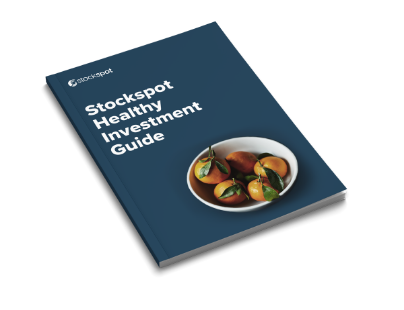Managed funds play a significant role in Australia’s financial landscape and often appeal to investors seeking professional guidance on where to invest their money. While many prefer having a professional manage their investments rather than selecting shares on their own, fund managers have a mixed track record. Active funds frequently underperform compared to Exchange Traded Funds (ETFs) that simply track the overall market.
We have reviewed and compared 801 of Australia’s largest managed funds across returns, fees and performance to the end of July 2024. We have found the top and best performing managed funds in Australia over the last five years across the following categories:
- What is the best performing Australian large shares managed fund?,
- What is the best performing Australian small shares managed fund?
- What is the best performing global large shares managed fund?.
We also provide our verdict on whether managed funds are worth investing in compared to alternatives like ETFs.
What is the best performing Australian large shares managed fund?
Here we compare the average managed fund versus the simple low-cost ETF we recommend to clients:
| Total funds compared | 349 |
| Index ETF return before fees (ASX:VAS) | 8.85% p.a. |
| Index ETF fees (ASX:VAS) | 0.07% p.a. |
| Index ETF net return (ASX:VAS) | 8.78% p.a. |
| Average managed fund return before fees | 8.16% p.a. |
| Average managed funds fees | 1.20% p.a. |
| Average managed fund net return after fees | 6.96% p.a. |
| $100,000 invested in the index ETF 5 years ago | $152,316 |
| $100,000 invested in the average managed fund 5 years ago | $139,947 |
| Managed funds that beat the index ETF benchmark over 5 years | 33 funds (9.5%) |
| Managed funds that underperformed the index ETF benchmark over 5 years | 315 funds (90.5%) |
Stockspot commentary
A simple index ETF significantly outperformed active fund managers both before and after fees.
The average Australian large cap active manager had a forgettable last 5 years, with around 90% underperforming an equivalent ETF after-fees. There is $122.2 billion invested into the 349 active funds we analysed. Given the under performance of 1.82% p.a. over 5 years this means that investors would have been better off by $11.1 billion had they invested into a low cost ETF instead. This is consistent with S&P research which shows that 80% to 95% of active funds underperform the index over the long run.
Why? Active investing is a zero sum game. For every winner there has to be a loser and since 95% of trading happens between professionals you would expect the average active manager to underperform the market return by the amount of their fees and other trading costs.
This is particularly true in highly competitive and professionalised markets like Australia and the U.S. where large cap and small cap shares are covered by hundreds of analysts and fund managers and there is very little ‘edge’ over each other or the market. This continues to hold true for Australian equities across different investment structures. We have found similar results in our research of LICs and actively managed super funds which both underperform equivalent index ETFs.
In order for a larger proportion of active managers to outperform the index or benchmark, they would need to significantly slash their fees, ideally to levels below 0.5% per annum. This undeniable mathematical reality is likely to contribute to an ongoing structural decline in the active funds management industry in Australia.
It’s worth noting that investment flows into managed funds tend to reach their peak at times when their relative performance is strong. However, when viewed from a money-weighted perspective, investors often experience long-term losses by chasing investment styles.
Australian large cap shares best performing managed funds over 5 years
| Product Name | 1-Year Return | 3-Year Return (p.a.) | 5-Year Return (p.a.) | ICR (fee %) |
| Glenmore Australian Equities | 26.52 | 13.94 | 14.19 | 1.20 |
| Paradice Equity Alpha Plus | 15.64 | 12.27 | 14.1 | 2.9 |
| PM Capital Australian Companies | 7.99 | 10.38 | 13.95 | 3.63 |
| Chester High Conviction | 12.27 | 9.71 | 13.16 | 1.35 |
| Smallco Broadcap | 20.79 | 9.63 | 11.56 | 2.06 |
| Tribeca Alpha Plus Class C | 18.67 | 9.52 | 11.27 | 0.6 |
| Airlie Australian Share | 15.49 | 8.1 | 11.22 | 0.78 |
| Hyperion Australian Growth Companies | 14.39 | 2.98 | 11.03 | 0.95 |
| Sterling Units | 26.97 | 10.52 | 10.7 | 0.78 |
| Tribeca Alpha Plus Class A | 18.00 | 8.72 | 10.62 | 0.97 |
Australian large cap shares worst performing managed funds over 5 years
| Product Name | 1-Year Return | 3-Year Return (p.a.) | 5-Year Return (p.a.) | ICR (fee %) |
| BlackRock Australian Share | 13.64 | -4.6 | 1.08 | 1.52 |
| BlackRock Equity | 13.63 | -4.56 | 1.23 | 1.75 |
| BlackRock Australian Share Plus | 13.64 | -4.6 | 1.25 | 1.25 |
| BlackRock High Conviction Australian Eq | 13.83 | -4.4 | 1.54 | 0.86 |
| CFS FC Inv-State Street Aus Equity | 3.35 | 0.64 | 1.57 | 1.05 |
| CFS FC-State Street Aust Equity | 3.39 | 0.67 | 1.74 | 1.02 |
| State Street Australian Equity | 3.85 | 1.13 | 2.16 | 0.7 |
| OnePath OA IP-IML Australian Sh EF/Sel | 2.58 | 3.22 | 2.45 | 1.44 |
| OnePath OA IP-Schroders Australian Eq EF | 3.44 | 1.81 | 3.08 | 1.47 |
| Ethical Partners Australian Share B | 4.41 | 4.21 | 3.35 | 0.8 |
Stockspot verdict: We recommend the Vanguard Australian Shares Index ETF (VAS) for our Stockspot clients over any of the available active funds for the reasons above. It has outperformed 90.5% of active managers on an after fee basis.
| Product Name | 1-Year Return | 3-Year (p.a.) | 5-Year (p.a.) | ICR (fee %) |
| Vanguard Australian Shares Index ETF (ASX:VAS) | 14.72 | 8.57 | 8/78 | 0.07 |
- On an after-fee basis, a striking 90.5% of active managers fall short of market benchmarks. If terminated funds were factored in, even more managed funds would exhibit underperformance.
- Furthermore, money-weighted returns within active funds remain even lower, primarily because of the common behavioral tendency to attribute outperformance to skill rather than chance. This often results in capital flowing into active funds that have recently outperformed, just before a period of underperformance unfolds.
What is the best performing Australian small shares managed fund?
Here we compare the average managed fund versus the simple low-cost ETF we recommend to clients:
| Total funds compared | 148 |
| Index ETF return before fees (ASX:VSO) | 7.73% p.a. |
| Index ETF fees (ASX:VSO) | 0.30% p.a. |
| Index ETF net return (ASX:VSO) | 7.43% p.a. |
| Average managed fund return before fees | 8.72% p.a. |
| Average managed funds fees | 1.81% p.a. |
| Average managed fund net return after fees | 6.91% p.a. |
| $100,000 invested in the index ETF 5 years ago | $143,096 |
| $100,000 invested in the average managed fund 5 years ago | $139,671 |
| Managed funds that beat the index ETF benchmark over 5 years | 60 funds (40.5%) |
| Managed funds that underperformed the index ETF benchmark over 5 years | 88 funds (59.5%) |
Stockspot commentary
Contrary to common belief, the majority of small cap fund managers underperform the small cap index on an after-fee basis. Part of the reason for this is that small-cap fund managers charge such significant fees.
Interestingly, the difference in the small cap sector between managed funds and an index fund is not as great as it is with Australian large caps, however the huge disparity in fees makes a huge impact on total returns. VSO, the ETF that Stockspot recommends to customers, performed 0.52% better once the fee benefits that fund managers take for themselves were factored in.
Australian small cap shares best performing managed funds over 5 years
| Product Name | 1-Year Return | 3-Year Return (p.a.) | 5-Year Return (p.a.) | ICR (fee %) |
| Regal Australian Small Companies Fund | 35.28 | 9.4 | 17.83 | 1.00 |
| Anacacia Wattle Fund | 7.3 | 7.17 | 16.43 | 1.50 |
| Ophir Opportunities | 31.41 | 13.08 | 16.3 | 1.49 |
| Microequities Pure Microcap Value | 10.85 | 5.89 | 15.68 | 1.8 |
| Spheria Australian Microcap | 9.8 | 9.8 | 15.09 | 3.73 |
| Bennelong Emerging Companies Fund | 25.55 | 6.18 | 13.89 | 6.99 |
| DNR Capital Australian Emerging Coms | 12.51 | 6.43 | 13.72 | 4.93 |
| Cromwell Phoenix Opportunities Fund | 9.28 | 6.86 | 12.93 | 8.79 |
| Microequities Pure Microcap Value | 33.24 | 26.5 | 9.03 | 12.73 |
| Prime Value Emerging Opportunities Fund | 12.88 | 22.27 | 5.84 | 12.72 |
Australian small cap shares worst performing managed funds over 5 years
| Product Name | 1-Year Return | 3-Year Return (p.a.) | 5-Year Return (p.a.) | ICR (fee %) |
| Equitable Investors Dragonfly | 8.78 | -17.84 | -5.87 | 2 |
| Perennial Value Microcap Opportunities | 7.59 | -12.46 | -1.45 | 2.79 |
| EGP Concentrated Value Fund | -6.86 | -7.15 | -1.41 | 0.25 |
| CFS FC Inv-Investors Mutual Future Ldrs | 13.99 | -3.04 | -1.13 | 1.34 |
| CFS Future Leaders | 13.99 | -3.06 | -1.09 | 1.31 |
| CFS Investors Mutual Future Leaders | 14.04 | -3 | -0.97 | 1.31 |
| Lincoln Retail Australian Growth | -2.51 | -4.52 | -0.58 | 2.05 |
| Lincoln Wholesale Australian Growth | -1.87 | -3.86 | 0.04 | 1.36 |
| Bombora Special Investments Growth | -9.69 | -9.28 | 0.98 | 7.96 |
| Ironbark Renaissance Australian Sm Comp | 11.17 | -2.69 | 1.28 | 1.2 |
Stockspot verdict: We prefer the Vanguard MSCI Australian Small Companies Index ETF (VSO) for our Stockspot clients over any of the available active funds. Why gamble on active funds for small-cap shares when over half do worse than a simple index ETF?
| Product Name | 1-Year Return | 3-Year Return (p.a.) | 5-Year Return (p.a.) | ICR (fee %) |
| Vanguard MSCI Australian Small Companies Index ETF (ASX:VSO) | 9.47 | 3.70 | 7.43 | 0.30 |
What is the best performing global large shares managed fund?
Here we compare the average managed fund versus the simple low-cost ETF we recommend to clients:
| Total funds compared | 304 |
| Index ETF return before fees (ASX:IOO) | 17.24% p.a. |
| Index ETF fees (ASX:IOO) | 0.40% p.a. |
| Index ETF net return (ASX:IOO) | 16.84% p.a. |
| Average managed fund return before fees | 11.78% p.a. |
| Average managed funds fees | 1.28% p.a. |
| Average managed fund net return after fees | 10.51% p.a. |
| $100,000 invested in the index ETF 5 years ago | $217,750 |
| $100,000 invested in the average managed fund 5 years ago | $164,797 |
| Managed funds that beat the index ETF benchmark over 5 years | 6 funds (2.0%) |
| Managed funds that underperformed the index ETF benchmark over 5 years | 298 funds (98.0%) |
Stockspot commentary
Over the past five years, global fund managers have shown the poorest relative performance when compared to a straightforward index ETF, with an annual underperformance of 6.33% p.a..
Out of a total of 304 active managers, only 6 managed to outperform the index ETF over 5 years. Assuming an initial investment of $100,000, choosing the global index ETF would have resulted in a $53,000 advantage over the average active manager’s performance over the same five-year period.
Notably, some well-known fund managers such as Magellan, Platinum, and ARK find themselves among the underperformers. With average fees amounting to around 2% per annum, these lagging active funds would need to consistently outperform the index by 10% over every five years just to offset their fees—an achievement that most of them fail to accomplish.
We have written more detail on the impact of fees and why we avoid active such as Wilson Asset Management (WAM), Platinum and Magellan here.
Global large cap shares best performing managed funds over 5 years
| Product Name | 1-Year Return | 3-Year Return (p.a.) | 5-Year Return (p.a.) | ICR (fee %) |
| Acadian Global Equity Long Short-Class A | 35.07 | 28.29 | 22.65 | 1.06 |
| CFS FC-Acadian Global Equity Long Short | 34.64 | 27.9 | 22.31 | 1.29 |
| CFS FC Inv-Acadian Glb Equity LS | 34.54 | 27.8 | 22.1 | 1.3 |
| Ironbark Royal London ConcentratedGlbShr | 31.4 | 19.53 | 20.33 | 1.03 |
| Loftus Peak Global Disruption | 31.91 | 12.82 | 19.81 | 4.73 |
| PM Capital Global Companies | 22.55 | 18.94 | 18.24 | 3.98 |
| GQG Partners Global Equity Fund | 33.15 | 16.73 | 16.46 | 0.75 |
| Janus Henderson Global Rsrch Gr | 28.52 | 11.47 | 16.32 | 0.75 |
| CFS FC Inv-PM Capital Glb Companies | 16.99 | 16.23 | 15.86 | 2.29 |
| CFS FC-PM Capital Global Companies | 16.96 | 16.16 | 15.76 | 2.48 |
Global large cap shares worst performing managed funds over 5 years
| Product Name | 1-Year Return | 3-Year Return (p.a.) | 5-Year Return (p.a.) | ICR (fee %) |
| ANZ OA IP-MFS Global Equity EF | -6.03 | -7.88 | 0.05 | 1.48 |
| OnePath OA IP-MFS Global Equity EF | -6.03 | -7.86 | 0.06 | 1.48 |
| Nikko AM ARK Global Disruptive Innovt | -5.17 | -22.93 | 0.1 | 1.35 |
| ANZ OA IP-Platinum International EF | 1.76 | -0.77 | 2.25 | 2.22 |
| OnePath OA IP-Platinum International EF | 1.76 | -0.75 | 2.26 | 2.22 |
| OnePath OA IP-Platinum International NE | 3.34 | 0.4 | 2.64 | 3.07 |
| OnePath OA IP-Magellan Global Tr EF/Sel | 2.17 | 0.56 | 3.37 | 1.97 |
| OnePath OA IP-Altrinsic Glbl Eq EF/Sel | 3.34 | 1.85 | 3.87 | 1.66 |
| OnePath OA IP-MFS Global Equity NE | 8.61 | -1.23 | 3.99 | 2.33 |
| Platinum International Brands Fund | -7.09 | -6.47 | 4.25 | 1.47 |
Stockspot verdict: Our preference leans heavily towards the Global 100 ETF (ASX:IOO) over any of the active funds currently on offer. Considering the significant level of underperformance exhibited by active funds, we find no compelling justification to incorporate them into the portfolios we recommend to our clients.
| Product Name | 1-Year Return | 3-Year Return (p.a.) | 5-Year Return (p.a.) | ICR (fee %) |
| iShares Global 100 ETF (ASX:IOO) | 26.97 | 15.82 | 16.84 | 0.4 |
Someone investing $100,000 into global shares five years ago would be $53,000 better off investing in the IOO ETF compared to the average global active managed fund.
What is a managed fund?
A managed fund is an investment vehicle where money from multiple investors is pooled together and managed by a professional fund manager. The fund manager selects and manages a diversified portfolio of assets – such as shares, bonds, property, or cash – on behalf of the investors.
Each investor in a managed fund owns units, which represent a portion of the fund’s holdings. The value of these units moves up and down based on the performance of the underlying assets. Managed funds charge fees, typically including management fees and sometimes performance fees, which are deducted from the returns before they are distributed to investors.
Managed funds have historically been popular in Australia for providing access to diversified investment opportunities, allowing investors to benefit from professional management without needing extensive knowledge or large amounts of capital.





